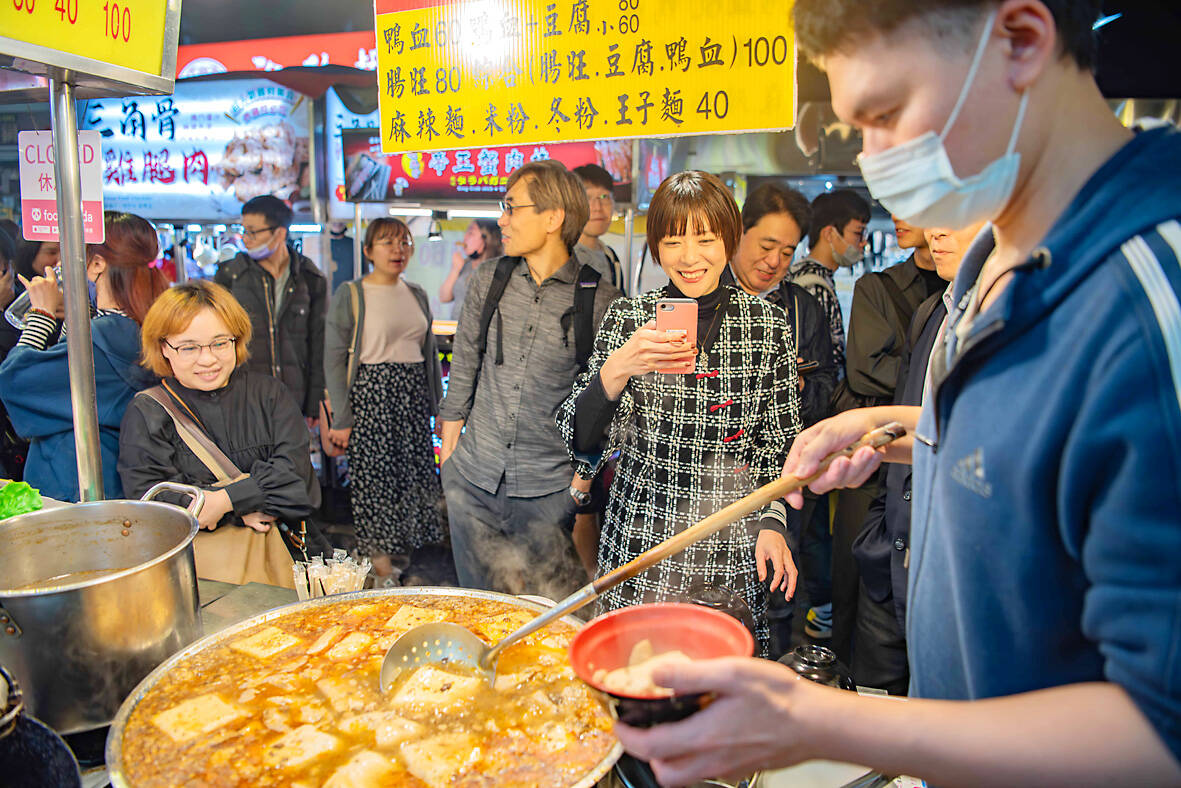The human sense of smell is nothing to turn one’s nose up at, research suggests, with scientists revealing we are far more sensitive to the order of odors captured by a sniff than previously thought.
Charles Darwin is among those who have cast aspersions on our sense of smell, suggesting it to be “of extremely slight service” to humans, while scientists have long thought our olfactory abilities rather sluggish.
“Intuitively, each sniff feels like taking a long-exposure shot of the chemical environment,” said Wen Zhou, co-author of the research from the Chinese Academy of Sciences, adding that when a smell is detected it can seem like one scent, rather than a discernible mixture of odors that arrived at different times.

Photo: LT
“Sniffs are also separated in time, occurring seconds apart from one another,” she said.
But now researchers have revealed our sense of smell operates much faster than previously thought, suggesting we are as sensitive to rapid changes in odors as we are to rapid changes in color.
A key challenge to probing our sense of smell, said Zhou, is that it has been difficult to create a setup that enables different smelly substances to be presented in a precise sequence in time within a single sniff.
However, writing in the journal Nature Human Behavior, Zhou and colleagues report how they did just that by creating an apparatus in which two bottles containing different scents were hooked up to a nosepiece using tubes of different lengths. These tubes were fitted with miniature check valves that were opened by the act of taking a sniff.
The setup meant the two scents reached the nose at slightly different times during the course of a single sniff, with a precision of 18 milliseconds.
The team then carried out a series of experiments involving 229 participants.
In one experiment, participants were presented with an apple-like odor and a floral scent, hooked up to the apparatus with different lengths of tubing that meant one scent would reach the nose about 120-180 milliseconds before the other. Participants were then asked to sniff the apparatus twice and report whether the order of the odors was the same or had been reversed.
The team found participants were correct in 597 out of 952 trials (63 percent of the time), with similar results when another 70 participants carried out the trials with lemon-like and onion-like odors.
Further tests, involving those who fared particularly well on these trials, revealed participants did better than chance even when two odors arrived at the nose a mere 40-80 milliseconds apart. The team said this interval was about 10 times shorter than previously thought to be necessary for humans to discriminate between two odors presented in one order and in the reverse order.
However, while participants could tell the smell had changed when the order of odors was switched, they found it harder to identify which odor actually came first. They fared better than chance on this task only for the lemon and onion-like smells, and then only when the odors reached the nose with an average time difference of 167 milliseconds. In this case, participants tended to report the overall smell captured in a sniff was more like the first of the two odors delivered — suggesting the order of scents shapes our perception.
“Overall, the discrimination between a pair of temporal mixtures is not dependent on accurately recognizing the order of the constituent odorants,” said Zhou. “Instead, it seems to be driven by a mechanism that operates on a much faster timescale than that involved in the serial recognition of mixture components.”

July 28 to Aug. 3 Former president Chiang Kai-shek (蔣介石) reportedly maintained a simple diet and preferred to drink warm water — but one indulgence he enjoyed was a banned drink: Coca-Cola. Although a Coca-Cola plant was built in Taiwan in 1957, It was only allowed to sell to the US military and other American agencies. However, Chiang’s aides recall procuring the soft drink at US military exchange stores, and there’s also records of the Presidential Office ordering in bulk from Hong Kong. By the 1960s, it wasn’t difficult for those with means or connections to obtain Coca-Cola from the

No one saw it coming. Everyone — including the Chinese Nationalist Party (KMT) — expected at least some of the recall campaigns against 24 of its lawmakers and Hsinchu Mayor Ann Kao (高虹安) to succeed. Underground gamblers reportedly expected between five and eight lawmakers to lose their jobs. All of this analysis made sense, but contained a fatal flaw. The record of the recall campaigns, the collapse of the KMT-led recalls, and polling data all pointed to enthusiastic high turnout in support of the recall campaigns, and that those against the recalls were unenthusiastic and far less likely to vote. That

Taiwan is today going to participate in a world-first experiment in democracy. Twenty-four Chinese Nationalist Party (KMT) lawmakers will face a recall vote, with the results determining if they keep their jobs. Some recalls look safe for the incumbents, other lawmakers appear heading for a fall and many could go either way. Predictions on the outcome vary widely, which is unsurprising — this is the first time worldwide a mass recall has ever been attempted at the national level. Even meteorologists are unclear what will happen. As this paper reported, the interactions between tropical storms Francisco and Com-May could lead to

A couple of weeks ago the parties aligned with the People’s Republic of China (PRC), the Chinese Nationalist Party (KMT) and the Taiwan People’s Party (TPP), voted in the legislature to eliminate the subsidy that enables Taiwan Power Co (Taipower) to keep up with its burgeoning debt, and instead pay for universal cash handouts worth NT$10,000. The subsidy would have been NT$100 billion, while the cash handout had a budget of NT$235 billion. The bill mandates that the cash payments must be completed by Oct. 31 of this year. The changes were part of the overall NT$545 billion budget approved